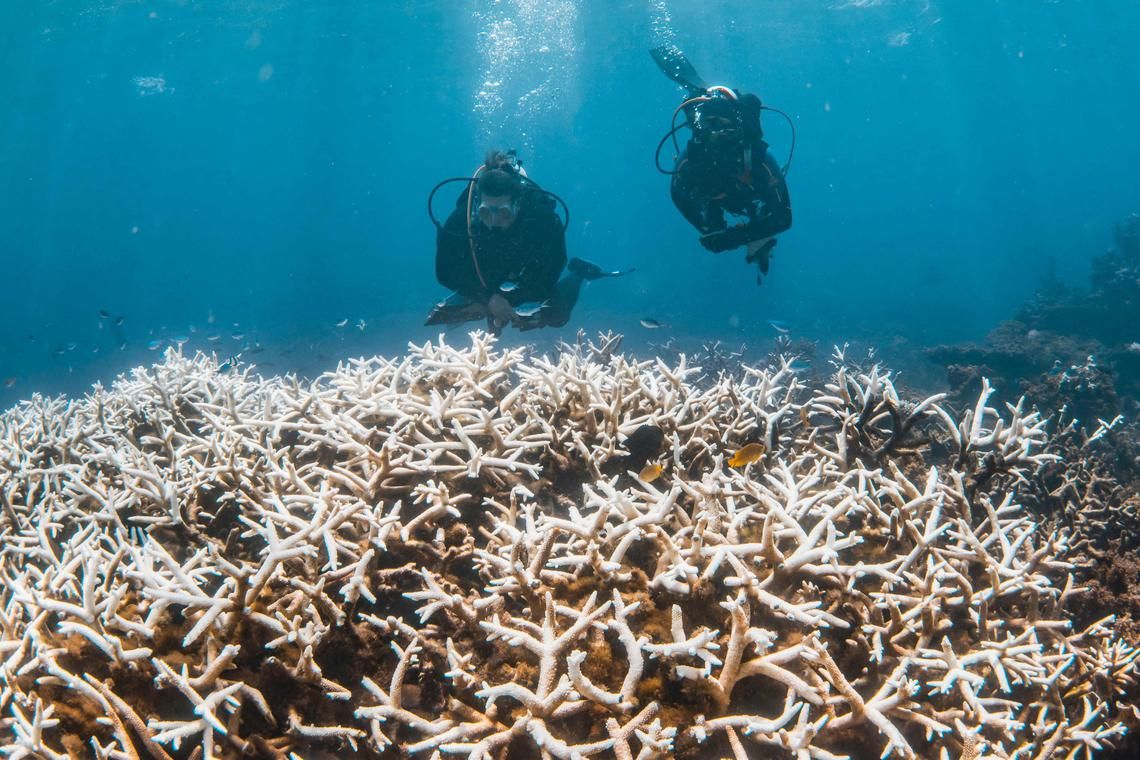SINGAPORE – An ocean of business opportunities lies in the biodiversity-rich waters of the Asia-Pacific, and a regional coalition was launched in Singapore on May 8 to help start-ups in the region scale up their ideas.
These start-ups have ideas or business models that are profitable or have the potential to generate profit, while also contributing to ocean health.
Examples include seaweed farming to reduce nutrient pollution, offshore wind power generation and coral restoration initiatives.
The 1,000 Ocean Startups coalition APAC, as the grouping is known, is the regional chapter of a World Economic Forum initiative launched in 2021.
The group comprises entrepreneur-supporting organisations that provide ocean impact start-ups with the resources to scale up. This includes investment, acceleration and mentorship programmes, networks and visibility.
The aim of the coalition is to support at least 1,000 impactful ocean-focused start-ups by 2030. So far, more than 350 start-ups have received support from it.
According to its website, the coalition has about 52 members, including investment companies, family offices, philanthropic organisations and firms that run accelerator programmes.
Of these, only six are headquartered in the Asia-Pacific, said Mr Thomas Knudsen, a principal of Singapore-based family office Rumah Group.
Rumah Group is one of three members based in Singapore. The other two are Mana Impact Partners and Potato Impact Partners, according to the coalition’s website.
Speaking to The Straits Times at the launch event held at The Foundry, Mr Knudsen said bringing the community together in the regional chapter could help showcase real efforts being taken to address the pressing issues facing the ocean.
“I think there are many who struggle with these big problems about climate change, biodiversity, and it’s easy to lose track of the fact that there are things people can do today,” he said.
“You can grow seaweed in the Philippines. You can sell it. You can help the local communities. It might be energy. It might be shipping, where you reduce the emissions from ships. It’s a business. It works.”
A key aim of having a regional chapter is to increase this number, said Mr Nick Chiarelli, a steering committee member of the 1,000 Ocean Startups coalition.
“One of the other challenges with South-east Asia and the Pacific, in particular, is that some of the solutions that we’re looking at are more grassroots and small-scale projects, whether fisheries or conservation,” he said. “Some of these things can be scaled with the right support, but it will take time.”
A healthy ocean is one of humanity’s greatest defences against climate change.
The UN has said that the ocean generates 50 per cent of the oxygen we need, absorbs 25 per cent of all carbon dioxide emissions and captures 90 per cent of the excess heat generated by these emissions.
But it is facing a multitude of threats, from overfishing to plastic pollution and marine heatwaves, which have cascading impacts on marine ecosystems such as coral reefs, seagrass meadows and kelp beds.
Mr Chiarelli told The Straits Times that a regional chapter can help to create a support network to uplift start-ups looking to make a difference in the waters of the Asia-Pacific.
He noted that the coalition’s different members have different funding priorities, such as those who choose to focus on food security, or others who have geographical focus areas.
Mr Chiarelli, co-founder and chief executive of Ocean Impact Organisation, said: “So if a start-up approaches a member with an idea that is not within (the member’s) focus area, we can refer it to a member within the group.
“Within the region, there are also different countries, with different industry and sector strengths.”
Singapore is a maritime powerhouse, he noted, while Australia has an established track record with fisheries.
“We want to see us exporting that know-how, so that fisheries and aquaculture practices can be improved around the world. There are so many reasons to collaborate,” he added.
Asked to comment on the launch of the new coalition, Associate Professor Peter Todd, director of the NUS Tropical Marine Science Institute, said: “I think it’s fantastic that there is this level of interest, and there is this appetite for investing in solutions.”
But he said it was important that the solutions being piloted are science-based, well tested and proven to work.
“I’d like to see strong evidence of that in any of the solutions that are being invested in, not just because we want to make sure they work, but also because we don’t want to have failures that could negatively impact the marine ecosystem,” Prof Todd added.
Join ST’s WhatsApp Channel and get the latest news and must-reads.

